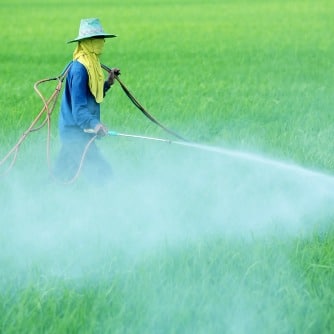A number of previous studies suggest that exposures in a past generation to environmental compounds – such as fungicides, plastics, pesticides, dioxin and hydrocarbons – may contribute to diseases among current and future generations. Methoxychlor – also known as Chemform, Methoxo, Metox or Moxie – was introduced in 1948 and widely used during the 1970s as a safer replacement for DDT, sprayed on crops, ornamental plants, livestock and pets. Identified as an endocrine disruptor and banned in the US in 2003, methoxychlor is still used in many countries around the world. Mohan Manikkam, from Washington State University (Washington, SUA), and colleagues exposed gestating rats to methoxychlor at a range typical of high environmental exposures, they saw increases in the incidence of kidney disease, ovary disease and obesity in offspring spanning three generations. The incidence of multiple diseases increased in the third generation or “great-grandchildren,” in a phenomenon called transgenerational epigenetic inheritance. The study authors warn that: “Observations indicate that the pesticide methoxychlor has the potential to promote the epigenetic transgenerational inheritance of disease and the sperm epimutations appear to provide exposure specific epigenetic biomarkers for transgenerational disease and ancestral environmental exposures.”
Past Generation Exposures to Pesticide May Precipitate Disease
Mohan Manikkam, M. Muksitul Haque, Carlos Guerrero-Bosagna, Eric E. Nilsson, Michael K. Skinner.” Pesticide Methoxychlor Promotes the Epigenetic Transgenerational Inheritance of Adult-Onset Disease through the Female Germline.” PLOS One, 24 Jul 2014.
RELATED ARTICLES




